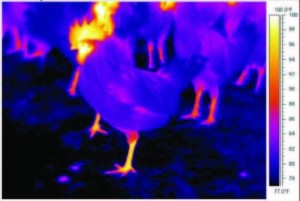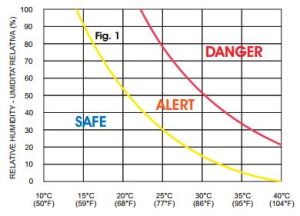Poultry Cooling
Dealing with summertime heat is a great challenge for poultry Under conditions of severe heat stress, poultry will have a reduced growth rate, decreased feed intake, poor feed conversion, decreased egg production,reduced hatchability rate, reduced egg shell quality, reduced egg size and reduced internal egg quality.Additionally, heat stress can cause increased mortality.All types and ages of poultry are susceptible to heat stress, but older poultry face a bigger risk. As poultry get older, they increase in size as well as insulation (feathering). This makes itharder for them to dissipate heat.
The most obvious sign of heat stress in poultry is panting. Poultry do not have sweat glands that can cool their skin, so instead they must use evaporation from their throat and respiratory system as a means of cooling themselves.Panting takes a lot of energy which, in turn, generates an appreciable amount of body heat for poultry.
Ultimately, if poultry are not relieved of heat stress, their body temperature can continue to rise and increase the possibility of mortality. Fortunately there are several things you can do to help your home poultry flock handle heat stress.
Effects of thermal stress on birds
Birds are able to regulate their body temperature by controlling heat loss through:
-their skin and feather cover
-evaporation by panting
This ability to thermoregulate is compromised if the birds are confined in close proximity to one another. This reduces their ability to lose heat by radiation, convection and conduction. Additionally, their ability to
lose heat by evaporation is reduced if there is a high humidity. If the birds’ ability to lose heat is reduced, their body temperature will rise and they will suffer from thermal stress, dehydration and exhaustion. This compromises their welfare and can lead to a reduction in meat quality by causing:
-alteration to the acid-base balance
-alteration to hydration state
-fatigue and depletion of energy reserves including
-liver and muscle glycogen loss
Ultimately, if body temperature rises by 4ºC or more, the bird will die
Placing poultry in a well-ventilated area will help reducethe incidence of heat stress. In addition, a misting/fogging system can be used in a well-ventilated area tohelp the birds cool themselves.


